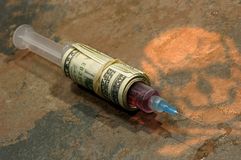We are often told: we are what we are. But this is misleading. It’s genetically true up to a point. But as living creatures, we can all change. In fact, we can’t stop changing as we age, and as we experience life. We may live through a long succession of similar days and think: it is what it is, and I am what I am. But this is just the result of too much similarity, not unchangeable destiny.
Everyone knows someone who has radically altered their life. Sometimes it is because fate stepped in and altered it. They had a life-transforming accident or experience; they lost a spouse or a child; they moved or found themselves in the midst of a war or tsunami or tornado. Sometimes they just said: I hate what I’m doing, I want to do something else, and initiated the change themselves.
In the case of addiction, most addicts are surrounded by people who want them to stop. Some do, but it takes considerable grit. Many don’t. Some, like my nephew who died of a heroin overdose, had been clean for years and then on a certain day, for no apparent reason, tried it again. He misjudged the dose by taking what he had been able to tolerate when he was an addict. It killed him.
In my novel “Skyscrapers,” I hope readers will see that Vern Webb Sr., who has many unattractive qualities, is a man who was rejected by his parents. He gave up on himself, turning to drugs as an easy anodyne for psychological pain. Then, he descended so far as to become a dealer and ultimately, a big-time dealer and enforcer: ie, he was a drug lord and a thug.
How, then, did he end up as a CEO? Well, I think any smart reader will see that he has to have had a lot of grit and determination. His self-disgust must at some point have grown great enough to enable him to get clean and pay for his education with his drug money. He got college degrees, he got into legitimate business, he tried to put his past behind him. His personality split is suggested by his two sons: one a genius and the other an alcoholic.
So why didn’t he leave the whole drug scene behind him? Why did he go to the effort of installing a drug-laundering system inside his legitimate enterprise, Midwest Industries? Readers will undoubtedly have different explanations for that, based on their own personal experiences.
But those of us who have dealt directly with addicts (I’ve dealt with four) know that few people can do what Vern Webb has accomplished at the beginning of this novel. No wonder he goes to such great lengths to try to protect his positive accomplishments and hide his past. In doing so, he conveniently manages to forget that he is helping unknown other people to become addicted every day of his life.
About the Author
Written by Jill Wilson Brennan
Jill lived in New York, Paris and London before settling in Chicago. She has had a very eclectic life, aspects of which appear in her new novel Skyscrapers. She has three children, all married, and serves as Director of a major children's hospital.



